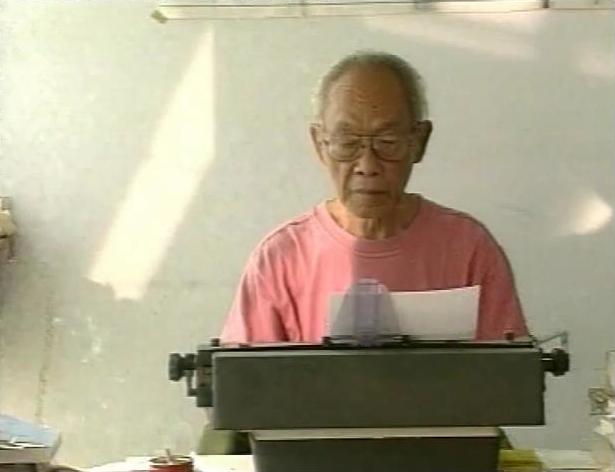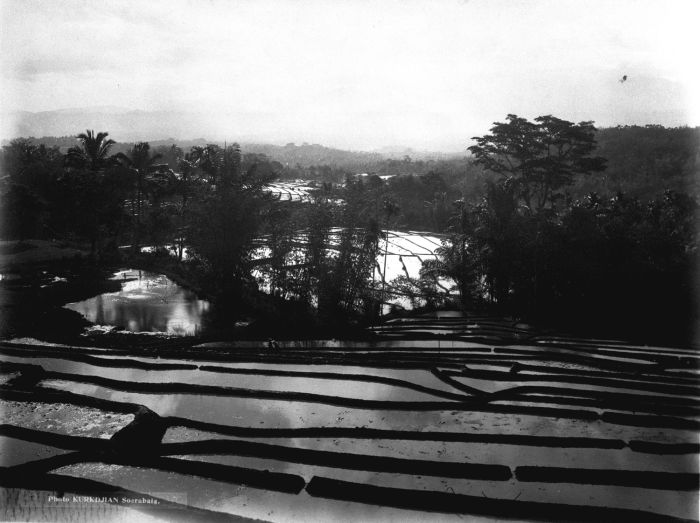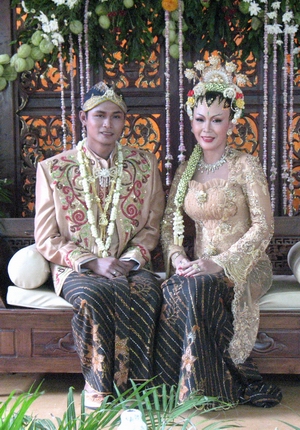|
Hoakiau Di Indonesia
''The Chinese in Indonesia'', Indonesian: ''Hoakiau di Indonesia'', is a book by Pramoedya Ananta Toer published in 1960 by Bintang Press. In the book, Toer (who was Javanese) criticized discriminatory policies imposed on Chinese Indonesians. The book is based on a series of articles published on the front page of Jakarta's biggest selling daily newspaper at the time: ''Bintang Timur'', published by Hasyim Rahman.Foreword by Maxwell Ronald Lane Toer, a humanist, engaged in political defiance and wrote essays addressing the importance of ethnic Chinese publishers in the promotion of the Malay language (at the time it was spoken of a very small minority of the Indonesian population) throughout the Dutch East Indies.Foreword to the English translation by K.S. Jomo Later he also spoke against the use of Javanese soldiers to "subdue the regions outside of Java". Pram endured the Japanese Occupation and was detained by the Indonesian Army during the Sukarno presidency for a year in ... [...More Info...] [...Related Items...] OR: [Wikipedia] [Google] [Baidu] |
Pramoedya Ananta Toer
Pramoedya Ananta Toer ( EYD: Pramudya Ananta Tur) (6 February 1925 – 30 April 2006) was an Indonesian author of novels, short stories, essays, polemics and histories of his homeland and its people. His works span the colonial period under Dutch rule, Indonesia's struggle for independence, its occupation by Japan during the Second World War, as well as the post-colonial authoritarian regimes of Sukarno and Suharto, and are infused with personal and national history. Pramoedya's writings sometimes fell out of favour with the colonial and later the authoritarian native governments in power. He faced censorship in Indonesia during the pre- ''Reformasi'' era even though he was well-known outside Indonesia. Dutch authorities imprisoned him from 1947 to 1949 during the War of Independence. During the transition to the Suharto regime, he was caught up in the shifting tides of political change and power struggles. Suharto had him imprisoned from 1969 to 1979 on the Maluku island of Bu ... [...More Info...] [...Related Items...] OR: [Wikipedia] [Google] [Baidu] |
Authoritarianism
Authoritarianism is a political system characterized by the rejection of political plurality, the use of strong central power to preserve the political '' status quo'', and reductions in the rule of law, separation of powers, and democratic voting. Political scientists have created many typologies describing variations of authoritarian forms of government. Authoritarian regimes may be either autocratic or oligarchic and may be based upon the rule of a party or the military. States that have a blurred boundary between democracy and authoritarianism have some times been characterized as "hybrid democracies", "hybrid regimes" or "competitive authoritarian" states. The political scientist Juan Linz, in an influential 1964 work, ''An Authoritarian Regime: Spain'', defined authoritarianism as possessing four qualities: # Limited political pluralism, is realized with constraints on the legislature, political parties and interest groups. # Political legitimacy is based upon appeals to ... [...More Info...] [...Related Items...] OR: [Wikipedia] [Google] [Baidu] |
Buru Quartet
The ''Buru Quartet'' or ''Buru Tetralogy'' ( id, Tetralogi Buru) is a literary tetralogy written by Indonesian author Pramoedya Ananta Toer at Buru Island detention camp in Maluku. It is composed of the novels ''This Earth of Mankind ''This Earth of Mankind'' is the first book in Pramoedya Ananta Toer's epic quartet called '' Buru Quartet'', first published by Hasta Mitra in 1980. The story is set at the end of the Dutch colonial rule and was written while Pramoedya was im ...'', '' Child of All Nations'', '' Footsteps'', and '' House of Glass'', published between 1980 and 1988. The book series is loosely based on the life of Tirto Adhi Soerjo. The Buru Quartet books were banned by the regime of long-serving Indonesian president Suharto and his successor B.J. Habibie. The ban was lifted in 2000. References External links''Buru Quartet'' reviewby the Asian Review of Books 1980s novels Historical novels Novels by Pramoedya Ananta Toer Censored books Novel series L ... [...More Info...] [...Related Items...] OR: [Wikipedia] [Google] [Baidu] |
West Java
West Java ( id, Jawa Barat, su, ᮏᮝ ᮊᮥᮜᮧᮔ᮪, romanized ''Jawa Kulon'') is a province of Indonesia on the western part of the island of Java, with its provincial capital in Bandung. West Java is bordered by the province of Banten and the country's capital region of Jakarta to the west, the Java Sea to the north, the province of Central Java to the east and the Indian Ocean to the south. With Banten, this province is the native homeland of the Sundanese people, the second-largest ethnic group in Indonesia. West Java was one of the first eight provinces of Indonesia formed following the country's independence proclamation and was later legally re-established on 14 July 1950. In 1966, the city of Jakarta was split off from West Java as a 'special capital region' (), with a status equivalent to that of a province, while in 2000 the western parts of the province were in turn split away to form a separate Banten province. Even following these split-offs, West Java is ... [...More Info...] [...Related Items...] OR: [Wikipedia] [Google] [Baidu] |
Baperki
The Consultative Council for Indonesian Citizenship ( id, Badan Permusjawaratan Kewarganegaraan Indonesia), often known by its Indonesian abbreviation Baperki, was an organization founded in Indonesia in 1954 by Indonesians of Chinese descent. It stood in the 1955 Indonesian legislative election, winning 0.5% of the vote, and was awarded one seat in the People's Representative Council. The organization sponsored schools including Res Publica University (1960). The group was associated with the Indonesian Communist Party (PKI). After the 1965 coup attempt in Indonesia, Res Publika was burned down and replaced by a new school, Trisakti, and the group was banned.* See also *Chinese Indonesians Chinese Indonesians ( id, Orang Tionghoa Indonesia) and colloquially Chindo or just Tionghoa are Indonesians whose ancestors arrived from China at some stage in the last eight centuries. Chinese people and their Indonesian descendants have l ... References {{Authority control Com ... [...More Info...] [...Related Items...] OR: [Wikipedia] [Google] [Baidu] |
Racial Integration
Racial integration, or simply integration, includes desegregation (the process of ending systematic racial segregation). In addition to desegregation, integration includes goals such as leveling barriers to association, creating equal opportunity regardless of Race (classification of human beings), race, and the development of a culture that draws on diverse traditions, rather than merely Cultural assimilation, bringing a racial minority group, minority into the majority culture. Desegregation is largely a legal matter, integration largely a social one. Distinguishing ''integration'' from ''desegregation'' Morris J. MacGregor, Jr. in his paper "Integration of the Armed Forces 1940–1969", writes concerning the words ''integration'' and ''desegregation'': In recent years many historians have come to distinguish between these like-sounding words... The movement toward desegregation, breaking down the nation's Jim Crow laws, Jim Crow system, became increasingly popular in the deca ... [...More Info...] [...Related Items...] OR: [Wikipedia] [Google] [Baidu] |
Arab Indonesians
Arab Indonesians ( ar, عربٌ إندونيسيون) or ''Hadharem'' (; sing., ''Hadhrami'', ), informally known as Jama'ah, and until the 20th century known as Codjas or Kodjas, note the work was also published in the Hague and Utrecht simultaneously by others. are Indonesian citizens of mixed Arab – mainly Hadhrami – and Indonesian descent. The group also includes those of Arab descent from other Middle Eastern Arabic speaking nations. Restricted under Dutch East Indies law until 1919, the community elites later gained economic power through real estate investment and trading. Currently found mainly in Java, especially West Java and South Sumatra, they are almost all Muslims. The official number of Arab and part Arab descent in Indonesia was recorded since 19th century. The census of 1870 recorded a total of 12,412 Arab Indonesians (7,495 living in Java and Madura and the rest in other islands). By 1900, the total number of Arabs citizens increased to 27,399, then 44,902 ... [...More Info...] [...Related Items...] OR: [Wikipedia] [Google] [Baidu] |
Legislation On Chinese Indonesians
Indonesian law affecting Chinese-Indonesians were conducted through a series of laws, directives, or constitutions enacted by the Government of Indonesia that affected the lives of Chinese Indonesians or Chinese nationals living in Indonesia since the nation's independence. The laws were made against Chinese Indonesians. Most of these laws are revoked following Reformation era under president Abdurrahman Wahid. 1950 In the early 1950s the Government of Indonesia implemented the Benteng program (''fortress program''), under which only Native Indonesians (''pribumi'') were allowed to have licenses to import certain items. This rule gave rise to the term "Ali Baba", referring to illicit co-operation between Chinese businessmen and native Indonesians who had connections in the government bureaucracy. Presidential Regulation 10 of 1959 Presidential Regulation 10 of 1959 ( id, Peraturan Presiden Nomor 10 tahun 1959) was a law directive issued by Indonesian government and signed ... [...More Info...] [...Related Items...] OR: [Wikipedia] [Google] [Baidu] |
Alien (law)
In law, an alien is any person (including an organization) who is not a citizenship, citizen or a nationality, national of a specific country, although definitions and terminology differ to some degree depending upon the continent or region. More generally, however, the term "alien" is perceived as synonymous with foreign national. (explaining that "the term 'foreign national' means.... (2) an individual who is not a citizen of the United States or a national of the United States (as defined in section 1101(a)(22) of title 8) and who is not green card, lawfully admitted for permanent residence, as defined by section 1101(a)(20) of title 8."). Lexicology The term "alien" is derived from the Latin ''alienus'', which in turn is derived from the Oscan ''mancupatis'', (a proto-Etruscan tribe), meaning a slave. The Latin later came to mean a stranger, a foreigner, or someone not related by blood. Similar terms to "alien" in this context include ''foreigner'' and ''lander''. Categor ... [...More Info...] [...Related Items...] OR: [Wikipedia] [Google] [Baidu] |
Guided Democracy In Indonesia
Guided Democracy () was the political system in place in Indonesia from 1959 until the New Order began in 1966. It was the brainchild of President Sukarno, and was an attempt to bring about political stability. Sukarno believed that the parliamentarian system implemented during the liberal democracy period in Indonesia was ineffective due to its divisive political situation at that time. Instead, he sought a system based on the traditional village system of discussion and consensus, which occurred under the guidance of village elders. With the declaration of martial law and the introduction of this system, Indonesia returned to the presidential system and Sukarno became the head of government again. Sukarno proposed a threefold blend of (nationalism), (religion), and (communism) into a co-operative Nas-A-Kom or Nasakom governmental concept. This was intended to satisfy the four main factions in Indonesian politics—the army, the secular nationalists, Islamic groups, and ... [...More Info...] [...Related Items...] OR: [Wikipedia] [Google] [Baidu] |
Suharto
Suharto (; ; 8 June 1921 – 27 January 2008) was an Indonesian army officer and politician, who served as the second and the longest serving president of Indonesia. Widely regarded as a military dictator by international observers, Suharto led Indonesia through a dictatorship for 31 years, from the fall of Sukarno in 1967 until his own resignation in 1998. The legacy of his 31-year rule, and his US$38 billion net worth, is still debated at home and abroad. Suharto was born in the small village of Kemusuk, in the Godean area near the city of Yogyakarta, during the Dutch colonial era. He grew up in humble circumstances. His Javanese Muslim parents divorced not long after his birth, and he lived with foster parents for much of his childhood. During the Japanese occupation era, Suharto served in the Japanese-organized Indonesian security forces. During Indonesia's independence struggle, he joined the newly formed Indonesian Army. There, Suharto rose to the rank of major g ... [...More Info...] [...Related Items...] OR: [Wikipedia] [Google] [Baidu] |
Javanese People
The Javanese ( id, Orang Jawa; jv, ꦮꦺꦴꦁꦗꦮ, ''Wong Jawa'' ; , ''Tiyang Jawi'' ) are an ethnic group native to the central and eastern part of the Indonesian island of Java. With approximately 100 million people, Javanese people are the largest ethnic group in Indonesia and the whole Southeast Asia in general. Their native language is Javanese, it is the largest of the Austronesian languages in number of native speakers and also the largest regional language in Southeast Asia. The Javanese as the largest ethnic group in the region have dominated the historical, social, and political landscape in the past as well as in modern Indonesia and Southeast Asia. There are significant numbers of Javanese diaspora outside of central and eastern Java regions, including the other provinces of Indonesia, and also in another countries such as Suriname, Singapore, Malaysia, Egypt, Saudi Arabia, South Africa, Sri Lanka, Yemen and the Netherlands. The Javanese ethnic group h ... [...More Info...] [...Related Items...] OR: [Wikipedia] [Google] [Baidu] |





.jpg)

